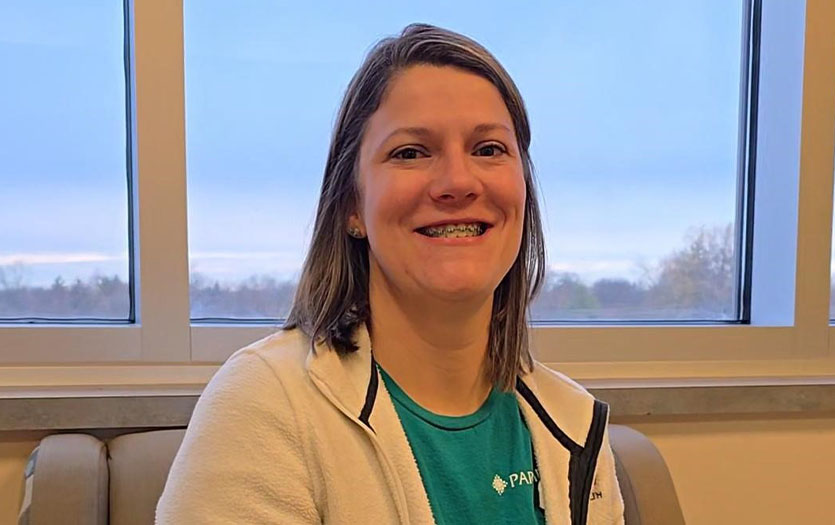
Enjoy this monthly mindfulness post from Dave Johnson, PhD, CNS- BC, LMFT, Employee Assistance Specialist.
In the middle of the 1970s, a wise nursing professor of mine led a group of students to listen to and meet the infamous Hans Selye, who was speaking on the stress response. He had a strong Hungarian-Canadian accent, and I committed his definition to memory that day. I can still picture the old slide projector and the slide that read: “The non-specific response of the organism to any pressure or demand.”
He mentioned something about his research, which he started in the 1930s. He said that the gnawing discomfort that folks had in their guts, and most diseases known to mankind, would be revealed in the study of stress. I was spellbound, and of course I had no awareness at the time that the field of psychoneuroimmunology would emerge 30 years after his lecture. Science would continue to reveal that overwhelming stress can breakdown immunity and resistance to many diseases, and that the common colds of mental health, anxiety and depression, would accelerate to epidemic proportions.
Throughout my career as a nurse and marriage and family therapist, I’ve sat sipping coffee and listening to stories about the nature of the stress response. The stuff of life that happened to folks would be revealed in a sacred space called a counseling office. Often in hushed tones that felt like a confessional or in panicked cries, I would hear the stories of burdens I sometimes could not imagine people carrying.
In my youth, I felt like I didn’t have enough life experience to give what was needed. As I aged, I experienced enough of my own trauma that I feared I would grow cynical. I am not a violent person, but I recall punching a wall one day after hearing a story about the death of a child. It was too close to my own heart, having lost my oldest son, Justin, to cancer. I cried at our staffing (a meeting of therapists to help ourselves stay grounded by reviewing new clients) that day. “How can I bring hope?” I would often ponder. The last thing folks in healthcare or counseling need is a Pollyanna-ish, “The sun will come out tomorrow” or likeminded cliché. How could a counselor, friend, parent, sibling, spouse, confidant, etc. provide an anchor in a life storm to someone in need?
I believe it’s by being hope.
As I write my monthly blog post, I face a barrage of news each day that undermines my sensibility of hope in a world that sometimes appears to have gone astray. Cries of children and parents, paired with hopelessness, anxiety, anger, confusion, loneliness and despair seep into the soul of the fabric of our well-being. And because of electronics and social media, I am certain that we can ingest seeds of the stress response all day long, every day. I know that Hans Selye was correct in his early intuition and science that the body keeps a stress score with disease of all types, including ailments that are physical, emotional and spiritual.
We all need the antidote of hope. Hope for our personal, family, community and world well-being. Hope truly is a big word. When we feel lost, confused, grief stricken, ill or immobilized by fear, it is hope that anchors our soul and bridges us to new land, dreams and a brighter future. But we can’t give what we don’t have and so how do we protect, cultivate, invite and deliver hope?
And so I ponder:
- Protect hope. I don’t bury my head by not listening to the news, but I know that a steady diet of “bad news” will disrupt my anchoring ability. I can be intentional about when I turn on the TV, radio, social media or negative commentators. And I can definitely be wise in recommending that teachers, parents and grandparents limit the exposure of negativity for our children. Negative people seem to suck the hope out of life. Harsh words or thoughtless actions, especially during times when one is vulnerable, animates despair. The fight, flight, freeze response on the rollercoaster or inhalation of a frightening movie might feel exhilarating at an amusement park or theater, but this same fear response can be exhausting when paired with the relentless bombardments of bad news and caustic or uncaring words of negativity that drive fear or uncertainty about the future.
- Cultivate hope through mindfulness. Joining a yoga, tai chi, or mindful meditation group, or using a daily mindful app can remind me how to come out of my thinking and overthinking brain and stay present to noticing in the moment. Often I get lost in the storyline or narrative in my thinking brain and obsess with worry about the past and future, which undermines hope. Simply reminding myself to come to my physical senses of taste, sound, sight, touch and smell grounds me in the moment. Even when the moment is one of physical or emotional pain, I can be present with what is happening within myself or others. Hope demands that I don’t fight, flee or freeze unless I am in immediate danger that mandates that automatic response. The head space between the stimulus and the response is our power and hope. If my inner story and dialogue wreaks of despair, who can hold my hand, whisper words, or lend their eyes of encouragement to help challenge the chatter? Cultivating hope reminds me to reach out to a friend, counselor, helpline, family member, God or perhaps write in one’s journal to anchor the soul. A walk with mother nature, a song of praise, a poem, story, book or scripture may lift the spirit in this moment to continue the journey. Hope sometimes shows up where we least expect.
- Invite hope. I once had a client challenge me about hope. She noted that hope for a better future undermines the present. But I see hope as the embodiment of spirit. Hope is the knowingness and wisdom that storms come and go and that goodness is a strong force within humanity. Hope finds voice and hands and eyes for those who invite it into their being. Perhaps our genes lean us in the direction of seeing a glass as half empty or full, but I am also certain that our thoughts and intentional focus open us to noticing goodness. Hope pairs well with self-compassion and healing, and is needed for building resilience to the wears and tears of stress. Noticing what we therapists call, “stinkin thinkin” and softly naming thoughts as “just thoughts” helps to disarm the cascading stress hormones and helps one to come back to reality. Sometimes life is a catastrophe in the moment and I think of hope as the softness or gentleness and goodness expressed as a mother sways her newborn baby. Being loving, kind and tender to oneself and others invites hope within and between.
- Deliver hope. I recall being a student nurse when my mentor gently washed the body of a stillborn child and wrapped her in the soft pink crocheted blanket her father had brought to swaddle her. The nurse was tender, kind, compassionate, caring and present with the parents that day. She modeled for me and the infant’s parents a sense of healing presence and hope. It was stable, natural, private, powerful and a sacred gift. A moment that imprinted in me and connected that being present is simple, but it certainly does not mean it is easy to do. I could read about it in a textbook or journal, but when I saw it I knew that I was privy to something bigger than words. I knew that one did not have to be a professional to companion others in this way. The imagery of the nurse soothing the body of the infant would reappear a few years later, when my wife, Rosie, bathed our nearly 5-year-old son’s lifeless body in the stillness and privacy of our home. Hospice workers and family were gone and it was the warmth of the water and hope that arrived just when needed. Hope is being awake, aware, and using all of my senses to ground. It reveals within and between that I am present. I am the hope.
“Hope” is the thing with feathers -
That perches in the soul -
And sings the tune without the words –
And never stops - at all.
– EMILY DICKINSON
For a free 1:1 in person or phone consultation with Dr. Dave or to find out about more on Mindfulness & Stress Management programs, contact the Parkview Center for Healthy Living at (260) 672-6500. Dr. Dave also provides on-site guidance for teambuilding and transformational leadership, among other topics. To learn more about Employee Assistance Programs for your company, call Business Development at (260) 373-9013. Mindfulness-based stress reduction (MBSR) practice has been extensively researched and proven helpful for coping with stress and change, grief, healthy eating patterns, pain, anxiety, depression and many other chronic disease and autoimmune disorders.



